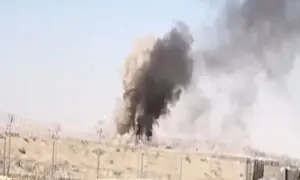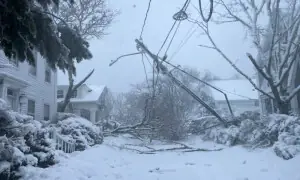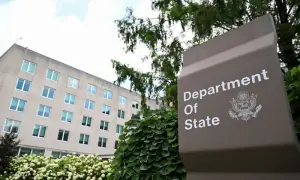Israel launches targeted raids in Lebanon despite US opposition to ground offensive
3 min readDespite US President Joe Biden’s opposition to a ground offensive in Lebanon, Israel has initiated “targeted” raids in the region, raising concerns over a potential escalation of conflict in the Middle East.
Biden urged for a ceasefire, particularly following the assassination of Hezbollah leader Hassan Nasrallah, stating, “We should have a ceasefire now.”
Shortly after Biden’s comments, State Department spokesman Matthew Miller confirmed that Israel had informed Washington of its ongoing “limited operations targeting Hezbollah infrastructure near the border.” The Israeli military later confirmed the execution of “ground raids” in southern Lebanon.
This situation echoes previous instances where Israeli Prime Minister Benjamin Netanyahu has intensified military actions following US calls for diplomacy. Just last week, after a joint US-French statement advocating for a three-week ceasefire, Netanyahu ordered new airstrikes against Hezbollah.
Brian Katulis, a senior fellow at the Middle East Institute, criticized the Biden administration’s response, suggesting it has been more of a bystander in these developments while providing Israel with the military support to conduct such operations.
At the United Nations, the contrast between US diplomatic efforts and Israeli military actions was stark. While Netanyahu authorized strikes against Hezbollah, US Secretary of State Antony Blinken reiterated the need for diplomatic solutions, affirming Israel’s right to defend itself but questioning the best means to achieve security objectives.
In the wake of Hezbollah leader Hassan Nasrallah’s assassination, US officials, including Secretary of State Antony Blinken, labeled him a “brutal terrorist.” However, the United States has emphasized that it was neither consulted about nor aware of Israel’s plans to target Nasrallah prior to the operation. This mirrors a similar statement made after the killing of Hamas leader Ismail Haniyeh in July, which was also attributed to Israeli actions.
Diplomats suggest that Israel is leveraging its recent successes against Hezbollah and Hamas, aiming to consolidate its position in the region. Meanwhile, Washington continues to advocate for diplomatic solutions in both Gaza and Lebanon, with Blinken asserting that diplomacy is “the best and only path to achieving greater stability in the Middle East.”
Blinken has been in discussions with international counterparts, including French Minister Jean-Noel Barrot, who urged Israel to refrain from ground operations—a plea that appears to have been ignored. In conversations with British officials and Arab leaders, he stressed the US commitment to advancing diplomatic efforts.
Despite the situation’s urgency, aides to Blinken acknowledge the limitations of US influence over Israeli Prime Minister Benjamin Netanyahu. The rapidly evolving circumstances have left the US reacting to developments rather than taking proactive measures.
Also, read this
Hezbollah leader’s death is ‘measure of justice’ for his victims, Biden says
Israel army chief says strikes in Lebanon prepare possible ground assault
So far, President Biden has not utilized military aid as leverage to influence Netanyahu’s decisions, aside from suspending one bomb delivery in May. The upcoming US elections have further complicated the situation, as Biden and Vice President Kamala Harris aim for a Middle East peace deal before the November 5 elections, though many analysts doubt a significant shift in strategy is forthcoming.
For the latest news, follow us on Twitter @Aaj_Urdu. We are also on Facebook, Instagram and YouTube.
























Comments are closed on this story.